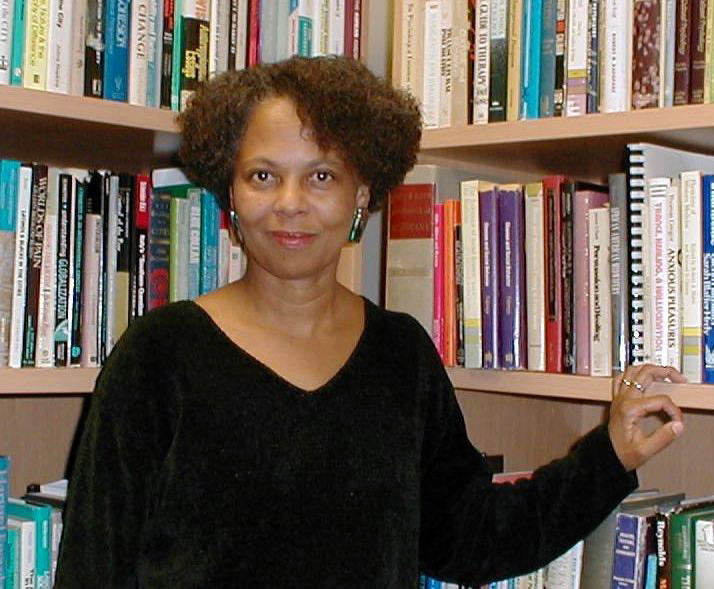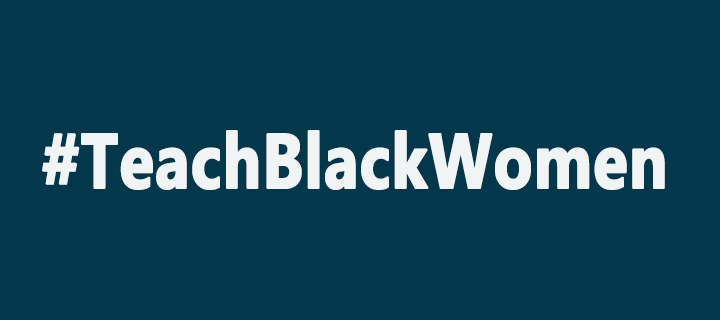Article begins
When we read the late Black anthropologist Leith Mullings’s article, “Interrogating Racism: Toward an Antiracist Anthropology,” the impulse is to read it for shaping our knowledge production for research, publications, and citations. We may even rethink the research methodologies that move us toward an antiracist anthropology. How about our pedagogies? How widely is Mullings’s work taught and situated as that of a Black woman anthropologist who paved the way toward an antiracist anthropology?
I (Nessette) lament that I did not know this article in graduate school. I had great white faculty mentors, but this essay, published as a review of the field, was neither taught nor emphasized as critical for my intellectual and research formation at the time. I was pursuing a project on prejudice and racism in Brazil, specifically about the experiences of Black lesbians in gynecology. Like many Black graduate students with scant to no Black faculty to guide us inside our departments, I struggled to make sense of my interventions on race and racism and intersectionality, and to bridge analysis of racism alongside other interlocking systems of oppressions.

In 2015, Black feminist anthropologist Dána-Ain Davis compelled me to always keep Mullings’s work close to me. Over time, I learned that not only was her scholarship critical for my research and publications, but it would greatly influence my Black queer feminist and social justice pedagogies, or Black/queer pedagogies.
In their work on race and sexuality, Jafari S. Allen mobilized the term “Black/queer” in anthropological thought to remind us that “Black/queer anthropology has emerged in another way—renarrativizing sociocultural analysis through the insistence on and/both, intersections and compounds, hyphens, strokes, parentheses, and messy interstices of real life and audacious imagination.” Allen’s direction of Black/queer also illuminates how Black/queer students and teachers exist together in the classroom. Since Black/queer folks know that antiracism and antiqueerness are conjoined sites of struggles in “real life and audacious imagination,” we invoke Mullings’s (a cisgender Black feminist) antiracist pedagogical impact.
I am only as good a teacher (Nessette)
During fall 2020, I taught, for a second time, my undergraduate course, Race Matters: An Anthropology of Racism. Despite the challenges of the COVID-19 pandemic and synchronous mode of teaching, I asked students to create a video for their final project, as I did in fall 2018. It was an effective exercise. This time, among the many public voices leading conversations on antiviolence that I added to the syllabus, such as Angela Davis, Ruthie Gilmore, Christen A. Smith, and Savannah Shange, Mullings’s essay was most pivotal to establishing the direction of an abolitionist anthropology (the main theme for their final videos and papers). I realized that I could not teach and guide my students to think, produce, and write about an abolitionist anthropology without the foundations of an antiracist anthropology. While we substantially unpacked Lee Baker’s book, From Savage to Negro, alongside ethnographies, who else would ask of us to grapple with the pedagogical and theoretical questions Mullings posed: When, how, and why does racism emerge historically? What are the varieties, directions, and manifestations of racism in the contemporary world? What do we know about how racism is maintained and reproduced? How does racism intersect with other forms of inequality such as class and gender? What are the strategies and tendencies against it? Mullings interrogated the field of anthropology with these questions, which also makes them integral to steering our pedagogies in the classroom to interrogate further both the field and social life.
I am cognizant of how I lead students, as a Black/queer female professor, to forge open dialogue and facilitate resistance in the classroom. bell hooks reminds us about the importance of an engaged pedagogy that allows students to “transgress” classroom boundaries in resistance. These teaching facilitations pose challenges. Is the permission they have from me transparent, trustworthy? In fact, giving myself permission to connect with them on these topics is a Black/queer feminist praxis. I cannot afford to take my positionalities for granted with white, BIPOC, queer, or cisgender students. What grounds me is teaching Black women and teaching students to recognize Black women and Black/queer scholars for the real life impact they bring to all students through their academic and praxis contributions.
I became a stronger anthropology teacher of race and antiracism when I taught Mullings’s work. And the Black of Black/queer in me knows it too well.
Queered silence (Micah)
For quite some time, I was unable to fully adapt to the body I carried. I felt involuntarily repressed and bodily separated from social spaces. A majority of those times, spent in solitude and a prolonged void of inflection, were moments of memory and loss. How, in the wake of the murders of Black transgender women such as Monika Diamond and Nina Pop among countless others, death lamented my body’s positionality. I grew into orienting myself to the disruptive effect of society’s structural power of the gender binary, heteronormative gender-based performance, and gendered violence by the nation-state. I learned to think about how I exist in the afterlife of slavery and understand that racial disparities, my targeted Black corporality, and our Black death will continue to haunt all Black life.
However, Dr. Falu introduced me to Mullings’s work. Mullings made clear that Blackness is queer. It is academically, politically, socially, spatially, and economically separate from achieving equity and autonomy in a society run by the white elite. Mullings left a legacy of scholarship that permeates a call to action—to interrogate, transform, and reconstruct the ivory tower, or the institutions of higher education, and their limited teaching on Black culture, history, and the everyday. Her work shows how, from the perspective of anthropologists, race and racism must be in direct conversation. As Mullings stated, a majority of anthropologists are race avoidant. Refuting, denying, and abstaining from acknowledging race and racism as social realities hinders anthropology and its methodologies, epistemological frameworks, and the lives and cultures it exploits.
Race Matters: An Anthropology of Racism invoked within me an insurrection against the academy and canonical literature. It provided me with the tools to oppose colonial education in ways that provoked changes in paradigm and ideology. Her course materials centered Black queer women, such as English literature and Black studies scholar Christina Sharpe and anthropologist Savannah Shange, and made it known that although Blackness is inherently separate it deserves to be center stage as its centrality is the corpus of civilization and being.

#TeachBlackWomen
The #TeachBlackWomen hashtag and movement signal to queer anthropologists, in fact, all anthropologists, that teaching Black women’s work effectively and responsibly is doing antiracist work in the classroom. Much like #CiteBlackWomen…
We may never know the impact of what we teach on our students unless we ask them. As Maya Angelou says, “People may forget what you say or do, but they never forget how you made them feel.” Our students need to feel the possibilities for social change. #TeachBlackWomen.
Leith Mullings, we miss you and forge on in your legacy.
Nessette Falu and Kirk Fiereck are section contributing editors for the Association for Queer Anthropology.

